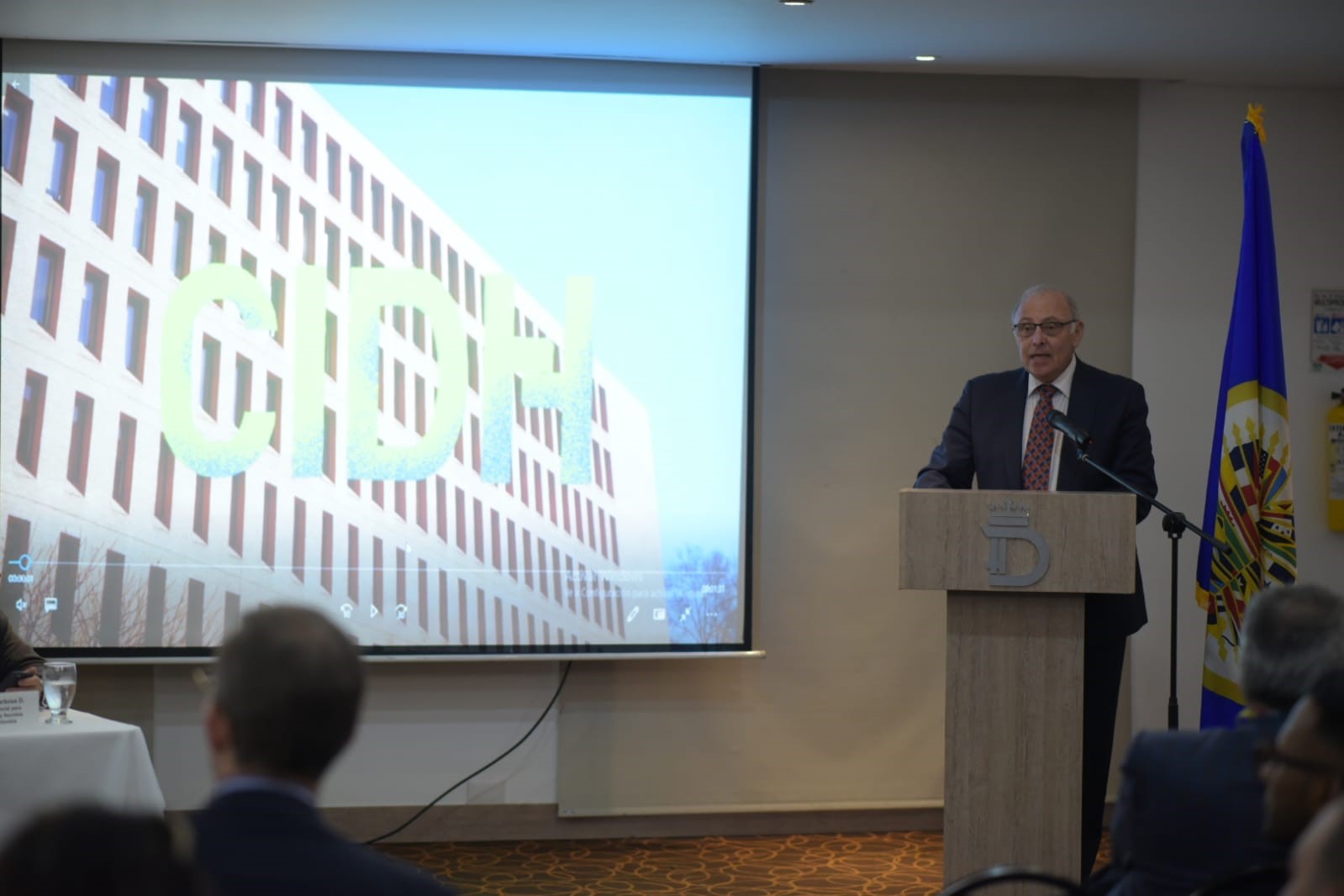The Evolving Nature of International Human Rights Adjudication: Reflections on the Occasion of the 60th Anniversary of the Inter-American Human Rights System

During the week of June 24, 2019, in Medellin, Colombia, the Organization of American States (OAS) celebrated its 60th Anniversary, in commemoration of the constituting Bogotá Conference in 1948. On June 26, one of the OAS principal institutions, the Inter-American Human Rights Commission, held a formal celebration to commemorate its contributions to the international protection of human rights.
Professor and Dean Emeritus Claudio Grossman gave a presentation during that celebration, in which he pointed out the evolving nature of the Commission’s work. He divided the Commission’s work into three phases: (1) fighting dictatorships; (2) supporting democratic transitions; and (3) accompanying states in expanding democracy.
The first phase took place between the late 1960s and the end of the 1980s. The Commission’s working method consisted mainly in the preparation of country reports in which it lay out the multiple human rights violations that the dictatorships in the Hemisphere committed. Sometimes, these country reports were the result of information the Commission received through individual petitions from specific human rights victims, including many refugees that had fled the dictatorships. The country reports constituted an invaluable source of reliable information with which to document the abuses committed at the time.
The second phase was the Commission’s support of democratic transitions in the Hemisphere. This phase took place mainly in the 1990s and early 2000s. The Commission’s main tool for compiling the human rights information and for causing impact on the system’s member states was through individual petitions. These petitions had several advantages over the country reports: they were binding findings in individual cases that created a body of international jurisprudence; they included a legal reasoning that added objectivity to the Commission’s human rights work; and since the findings about these cases were published, and the states had the possibility of submitting memorials to defend themselves during the procedure, the process became more transparent. The cases that the Commission decided at the time established some of the fundamental principles and rules for any democratic transition from military governments. For example, the Commission ruled on the prohibition of military trials when civilians were involved in the cases; the prohibition of amnesty laws that would perpetuate impunity for serious human rights violations; the obligation of the newly democratic governments to respect the independence of the judiciary; as well as the obligation of free speech.
The third phase consisted in expanding the benefits of democratic governance to all spheres of society. The Commission received and decided on individual petitions that were used to set the parameters of democratic participation for groups that until then had been heavily underrepresented. The Commission adopted decisions on topics such as gender, LGTBQ+ rights, indigenous peoples’ rights, and non-discrimination.
However, the Commission is currently facing a number of challenges, which are external and internal in nature. The external challenges are the continued fragility of many democracies in Latin America. The regression back to dictatorships in Venezuela, Nicaragua, and other countries is alarming. The rise of chauvinism and populism lead to a questioning of normative decision-making. This could negatively impact the Commission, which has made a great effort to articulate its human rights protection in these normative terms.
As to the internal challenges, the Commission continues to suffer from a very long backlog in adjudicating individual petitions. This means that the delays in deciding cases have to be reduced and efficiency increased. The Commission is currently lacking a mechanism to attract jurisdiction on whole categories of cases, so that in one case it could hear all complaints filed on topics such as corruption, DESC, or discrimination. Finally, the debate within the Commission about the margin of deference to state action is not yet fully resolved. It would be necessary, in many instances, that the Commission left the states to decide on their policies, and restricted its decisions to the actual violation of the American Convention on Human Rights or the Inter-American Declaration of Rights and Duties of Men. In sum, the Commission over the years has made a great contribution to the development of human rights in the Hemisphere. The Commission cannot afford to be lagging behind in adapting to new circumstances and in developing new methods to effectively fulfill its mandate.